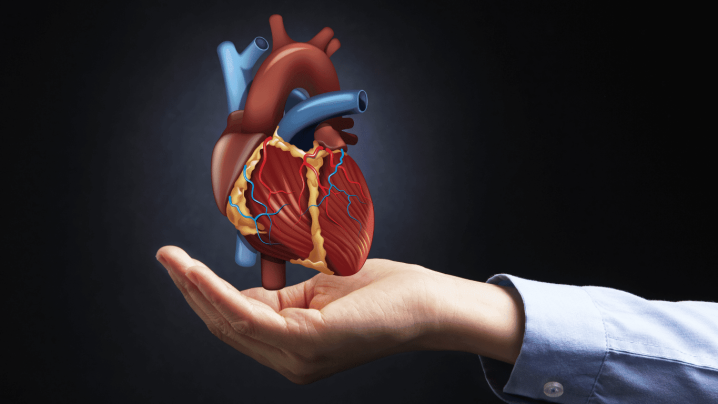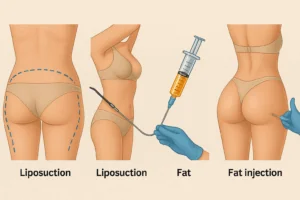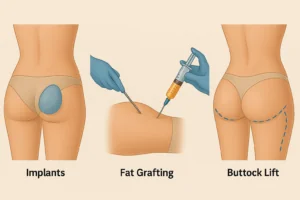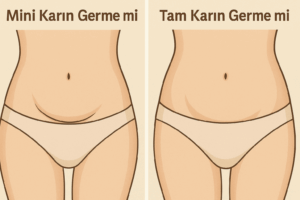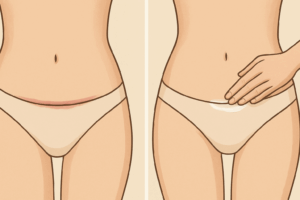The heart is one of the most vital organs of our body and its regular functioning is critical for our health. However, sometimes the rhythm of our heart can be disrupted and this can lead to serious health problems. In this article, we will provide detailed information about heart rhythm disorders and discuss this important topic from the perspective of a cardiologist.
What is Heart Rhythm?
Heart rhythm is the regularity of the beating of our heart as it contracts and relaxes in a regular way. A normal heart rhythm is between 60 and 100 beats per minute. This rhythm is controlled by the sinus node located in the upper right chamber of the heart.
Importance of Normal Heart Rhythm
A normal heart rhythm is vital for an adequate supply of blood and oxygen to all the organs of our body. A regular heart rhythm:
- Ensures that organs maintain their function
- Stabilizes blood pressure
- Regulates metabolism
- Maintains our energy levels
What are Heart Rhythm Disorders?
Heart rhythm disorders are when our heart deviates from its normal rhythm. These disorders can cause our heart to beat too fast, too slow or irregularly.
Tachycardia
Tachycardia is when the heart beats faster than normal. Generally, rhythms above 100 beats per minute are considered tachycardia.
Supraventricular Tachycardia (SVT)
SVT is a rapid heartbeat originating in the upper chambers of the heart. It usually starts and ends suddenly.
Symptoms:
- Palpitations
- Chest pain
- Shortness of breath
- Dizziness
Ventricular Tachycardia (VT)
VT is a dangerous rhythm disturbance originating in the lower chambers of the heart. It may require urgent intervention.
Symptoms:
- Severe palpitations
- Chest pain
- Feeling of not being able to breathe
- Loss of consciousness
Bradycardia
Bradycardia is a condition in which the heart beats slower than normal. Generally, rhythms below 60 beats per minute are considered bradycardia.
Symptoms:
- Fatigue
- Dizziness
- Difficulty concentrating
- Fainting
Atrial Fibrillation (AF)
AF is one of the most common heart rhythm disorders. It is characterized by irregular and rapid contraction of the upper chambers of the heart.
Symptoms:
- Irregular heartbeat
- Palpitations
- Fatigue
- Shortness of breath
- Dizziness
Ventricular Fibrillation (VF)
VF is a life-threatening arrhythmia. The lower chambers of the heart contract in a chaotic manner, making it unable to pump blood.
Symptoms:
- Sudden loss of consciousness
- Respiratory arrest
- Failure to get a pulse
Causes of Heart Rhythm Disorders
Heart rhythm disorders can have many causes. Some common causes are:
- Heart diseases (coronary artery disease, valvular heart disease)
- High blood pressure
- Thyroid gland problems
- Electrolyte imbalances
- Medicines and drugs
- Excessive alcohol consumption
- Caffeine
- Stress and anxiety
- Sleep apnea
- Genetic factors
Diagnostic Methods
Various methods are used to diagnose heart rhythm disorders:
Electrocardiogram (ECG)
ECG is the most basic diagnostic method that measures the electrical activity of the heart. It is the first test used to detect rhythm disorders.
Holter Monitor
A portable device that records heart rhythm for 24 hours or longer. It is used to detect intermittent rhythm disturbances.
Effort Testing
This test, performed on a treadmill or bicycle, is used to detect rhythm disturbances that occur during exercise.
Echocardiography
It is an ultrasound-based imaging method that evaluates the structure and function of the heart. It helps to detect structural problems that can cause rhythm disturbances.
Electrophysiological Study
It is an invasive method used to examine the electrical system of the heart in detail. It is used to diagnose and treat complex rhythm disorders.
Treatment Methods
Treatment of heart rhythm disorders depends on the type of disorder and the underlying cause. The main treatment methods are:
Medication Therapy
Antiarrhythmic drugs are often used to control arrhythmias. These medicines regulate the heart rhythm and prevent abnormal beats.
Commonly Used Antiarrhythmic Drugs:
- Beta blockers
- Calcium channel blockers
- Digoxin
- Amiodarone
- Flecainide
Electrical Cardioversion
This method aims to restore normal rhythm by delivering a controlled electric shock to the heart. It is generally preferred for continuous rhythm disorders such as atrial fibrillation.
Ablation Therapy
Also known as catheter ablation, it involves destroying the heart tissue causing the arrhythmia using radiofrequency waves or cryotherapy (cold therapy).
Pacemaker Implantation
It is a small electronic device implanted in the body to regulate the heartbeat in slow heart rhythms, such as bradycardia.
Implantable Cardioverter Defibrillator (ICD)
It is an advanced device that detects and treats life-threatening ventricular arrhythmias. When necessary, it delivers an electric shock to the heart to restore normal rhythm.
Ways to Prevent Heart Rhythm Disorders
There are many things you can do to prevent heart rhythm disorders:
- Exercise regularly: Do at least 150 minutes of moderate-intensity aerobic exercise per week.
- Eat a healthy diet: Eat a diet rich in fruits, vegetables, whole grains and lean proteins.
- Stop smoking: Smoking significantly increases the risk of heart disease and rhythm disorders.
- Limit alcohol: Excessive alcohol consumption can lead to rhythm disturbances.
- Manage stress: Reduce stress through meditation, yoga or other relaxation techniques.
- Pay attention to your sleep patterns: Regular and adequate sleep is important for heart health.
- Have regular health check-ups: Regular cardiological examinations are important, especially if you have risk factors.
- Control caffeine consumption: Excessive caffeine consumption can trigger arrhythmias in some people.
- Take your medicines regularly: If you are taking medicines for heart disease or hypertension, follow your doctor's advice.
- Keep your weight under control: Obesity is a risk factor for heart rhythm disorders.
Conclusion
Heart rhythm disorders are an important issue that can lead to serious health problems. However, with the right diagnosis and treatment, many arrhythmias can be successfully managed. If you notice signs of heart arrhythmia in yourself or a loved one, it is important to consult a cardiologist immediately.
Remember, the health of your heart is in your hands. By adopting a healthy lifestyle and having regular check-ups, you can reduce the risk of heart rhythm disorders and live a long, healthy life.


